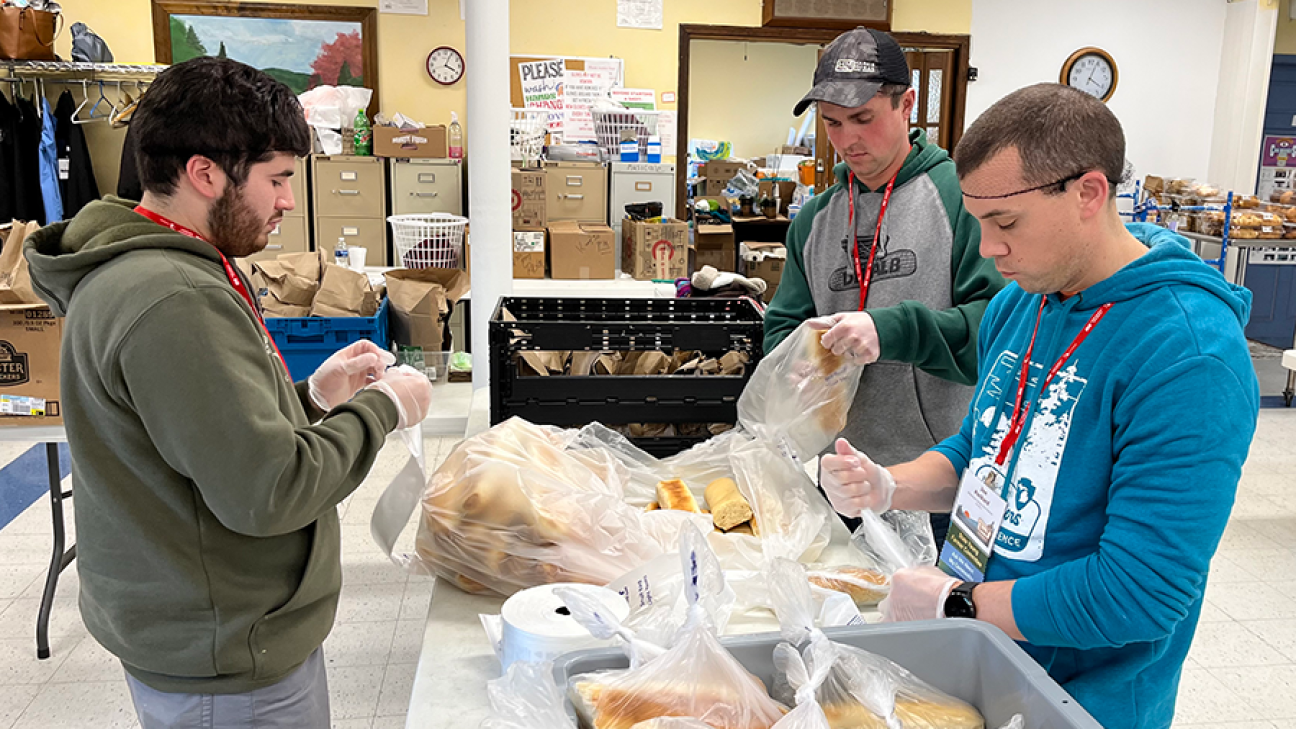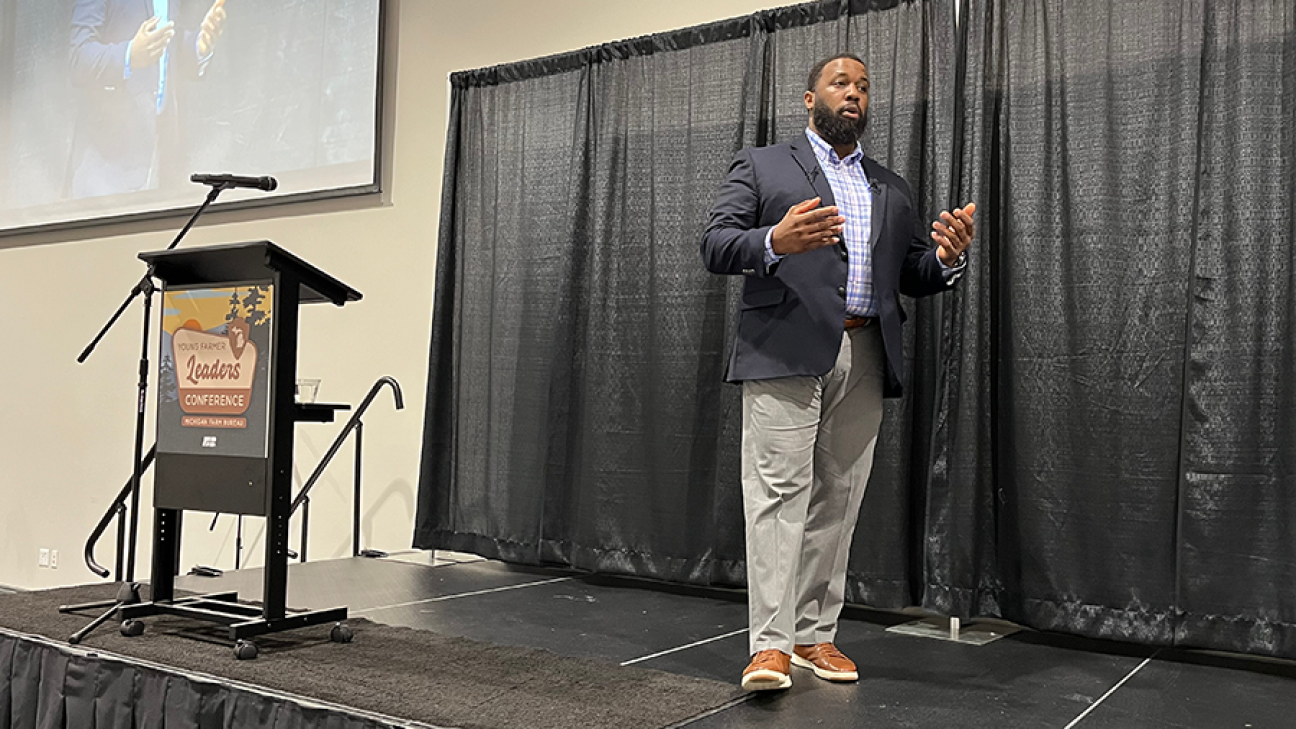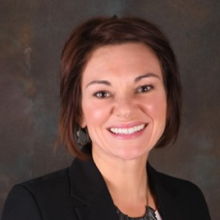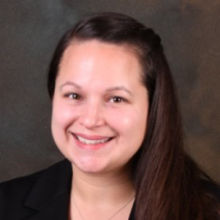My breakout session at Young Farmer Leaders Conference (Farm Gate 101, essentially) included some conversation about the value of Farm Bureau membership, because part of the publication’s marching orders is to showcase exactly that.
Farm Bureau is a multifaceted institution and everyone gets something different for their dues. One repeating pattern throughout its crazy-quilt “value proposition” has a deceptively simple label: networking.
‘Networking’ is just trendy jargon for connecting with people, but since I got home from Port Huron, my experience at YFLC was looking mostly like a sequence of great conversations — so that’s how I wrote this recap — as a sequence of conversations.
Friday Afternoon
Friday-afternoon tours have become a staple launching pad for our smaller winter conferences. I tagged along with a group of members visiting Mid-City Nutrition, a soup kitchen that’s been comfortably hermit-crabbed into a Lutheran church basement since 1987.
Mid-City’s an impressive operation with a sobering model involving some of its volunteers driving a daily circuit of local stores and restaurants, gathering yesterday’s still-perfectly-good food products for redistribution to hungry local residents.
“We are the end of the supply chain,” said Sarah Jones, Mid-City’s chatty and passionate executive director.
Think about that — We are the end of the supply chain — and how it landed in the minds of a group of farmers, who inherently pride themselves on being the origin of that same supply chain.
It was a full-circle moment playing out in real time, with the ensuing exchange connecting dots in all directions. It got even more interesting when Director Jones, an import from Detroit proper, mentioned she’s trying her own hand at food production on the small farm she’s sprucing up west of town. That triggered a flurry of practical input and advice from our Young Farmers, further amplifying the full-circle nature of the experience.

Friday Evening
That evening I mostly stuck with the same group, the least familiar of whom was YFLC first-timer Guillermo Escobedo. He’d been pretty quiet most of the day, in an observant, eyes-open-mouth-shut kind of way I respect and identify with myself.
That said, he was perfectly conversant when I asked for a summary of Guillermo 101. Turns out he works for well-known Kalamazoo County hay baron Mitch Kline, former chair of the state Young Farmer committee.
At dinner Guillermo was on my right, and sitting across from me was Sam and Aaron Schade. Sam chairs Mason County Farm Bureau’s Young Farmer program and represents District 9 on the state committee. She’s as sharp as cookies come but I took the opportunity to connect with her other half on a personal matter:
“So, Aaron,” I started. “Did you ever spend much time at your grandparents’ house on Beechwood in Ludington when you were a kid?”
His expression (73% surprise, 27% confusion) confirmed that I’d caught him off guard: How would I know and why would I ask? His answer was affirmative: Yes, he visited regularly and remembered loving how, as a rambunctious farm kid in town, he could “run laps” inside the house.
“That’s right!” I said to his continued confusion. “That back bedroom’s a pass-through — two doors.”
Then I showed my cards: “I grew up in that house.”
And among its subsequent inhabitants (since I helped mom and dad vacate it in 1991) were Aaron’s grandparents — Chuck’s folks, who moved into town after retiring from the farm down in Riverton Township.
As small-world moments go it was pretty straightforward, but connection’s connection and it felt good to remind young Aaron our families are linked even in that remote way.
Saturday Morning
Between breakout sessions attendee Josh Scramlin from Oakland County collared me to ask about how MFB’s communications team is structured. Before we got to that, though, I had to ask that he chart his location in the greater Scramlin Family Dynasty, which goes back several generations and includes two or three of his kinfolk I’ve worked with personally.
Beyond that our conversation meandered around to the dynamics of media relations, Owosso’s better eateries, and his work with a large pork organization — member relations — meaning he gets to roam three states visiting pig producers on their own turf.
“Sounds familiar,” I said, agreeing with him that working directly with farmers in their own natural habitat is the best part of our jobs (and has made us both Chatty Cathies.)
Saturday Afternoon
As the lunchtime crowd shuffled through the buffet lines, guest speaker Aaron Scott stood at the front of the room, near the stage, taking it all in — all by himself. He looked perfectly content and exuded nothing but confidence, but when I see lone rangers I’m compelled to visit.
As UDIM’s Community Transformation Manager, Aaron does vitally important work connecting our dairy industry with some of Michigan’s most at-risk populations: schoolchildren in the state’s largest urban centers, primarily Detroit.

An hour later it seemed like our one-on-one chat was kind of a dress rehearsal for the impassioned delivery he gave on stage. I was there throughout and appreciated both the specifics of his message and the bigger picture it was part of: applying agriculture’s feed-everyone mission more directly toward those who need it most.
We fret about arable land being wasted to sprawl and solar farms, but sometimes forget that great, liveable cities don’t shed country-hungry evacuees like neglected, depressed cities do: Investing in urban limits its threat to rural.
Later that day ProFILE participant Chris Fox from Ionia County asked me to ask if I’d review the article he was contributing to Farm Gate.
I challenged this ProFILE cohort to report on their experiences in MFB’s elite leadership development program, and so far they’re all aces. My rationale is that good communication skills are vital to leadership. Discussion meets exercise your public speaking and diplomacy. Media training emphasizes how to best transmit your message to the masses.
Similarly, writing helps organize your thoughts and maintain a positive perception in the eyes of audiences prone to judge or dismiss farmers as dumb hicks. It’s one thing to claim a seat at the table; staying there and proving your value to the conversations there require all of us to put our best feet forward.
As I’m going over Chris’ article with him, almost as if on cue, up walks Nathan McGuire to thank me for helping him with a recent letter he composed for his membership up in Antrim County. His timing was impeccable but I swear no money was exchanged!
Actually Chris and Nate have something in common with most other Farm Bureau members I’ve worked with over the past 20 years: Despite all your hesitance and self-doubt, you’re much better writers than you give yourself credit for.
Saturday Evening
On my way into the reception I was stopped by Paige Lupcke, who was holding court with her fiancé Jake Penney and cousin Daniel Bublitz.
Paige is Bay County’s Young Farmer chair and hails from Munger — potato country. We got to know each other when she interned at MFB back in pre-Covid times, working with our Young Farmer, Collegiate and high school programs.
The 2018 Sugar Queen now works for Michigan Sugar Company as an agriculturalist, helping beet growers with contracting, scouting and delivery. Her man Jake is friendly as a farmer but works as a piping designer. (I don’t know what that means.)
Closer to the dirt of the southwestern Thumb is Cousin Daniel, who grows black and navy beans, soybeans and wheat across the county line near Fairgrove.
Sunday Morning
Again: I see lone rangers and feel compelled to make contact. Sunday morning breakfast was well underway and young Ethan Bognar was sitting by himself so that’s where I parked.
A young hay producer from Hillsdale County, I’d noticed Ethan from a breakout session the day before, where he asked some insightful questions about potential liability concerns associated with his commodity.
Chatting over breakfast I learned a whole lot more, starting with his aspirations to grow his small operation over time to a point where he can do hay full time and leave his off-farm day job behind.
More than that I enjoyed the opportunity to learn more about the quirks of the hay business. When I shared with him my confession — “I love talking with hay guys about horse people” — his eyes got wide and chuckled, “Horse people? What about the goat people?”
Turns out the uptick in goat production means another lucrative market for hay brokers like Ethan, and with it comes a new, similar-but-different set of criteria those producers look for in their forage.
The Moral of the Story
Farm Bureau’s complicated “value proposition” isn’t easily summarized, but it begins with the simple fact that your $50 dues plugs you into a statewide network of like-minded peers, most of whom share at least one common goal: Securing a livelihood as a full-time farmer.
Those peers are your age or older — or younger. Their operations are bigger, smaller and/or about the same size as yours. They raise all, some or none of the same commodities you raise. And their production methods may differ dramatically from yours. But it’s the challenges you all share that makes your network so valuable: Labor. Inputs. Consumer trends. Foreign competition. Burdensome regulation. Bonkers Michigan weather.
There’s a lot to discuss, learn and benefit from.
Share Story
Article Tags

Katie Eisenberger


